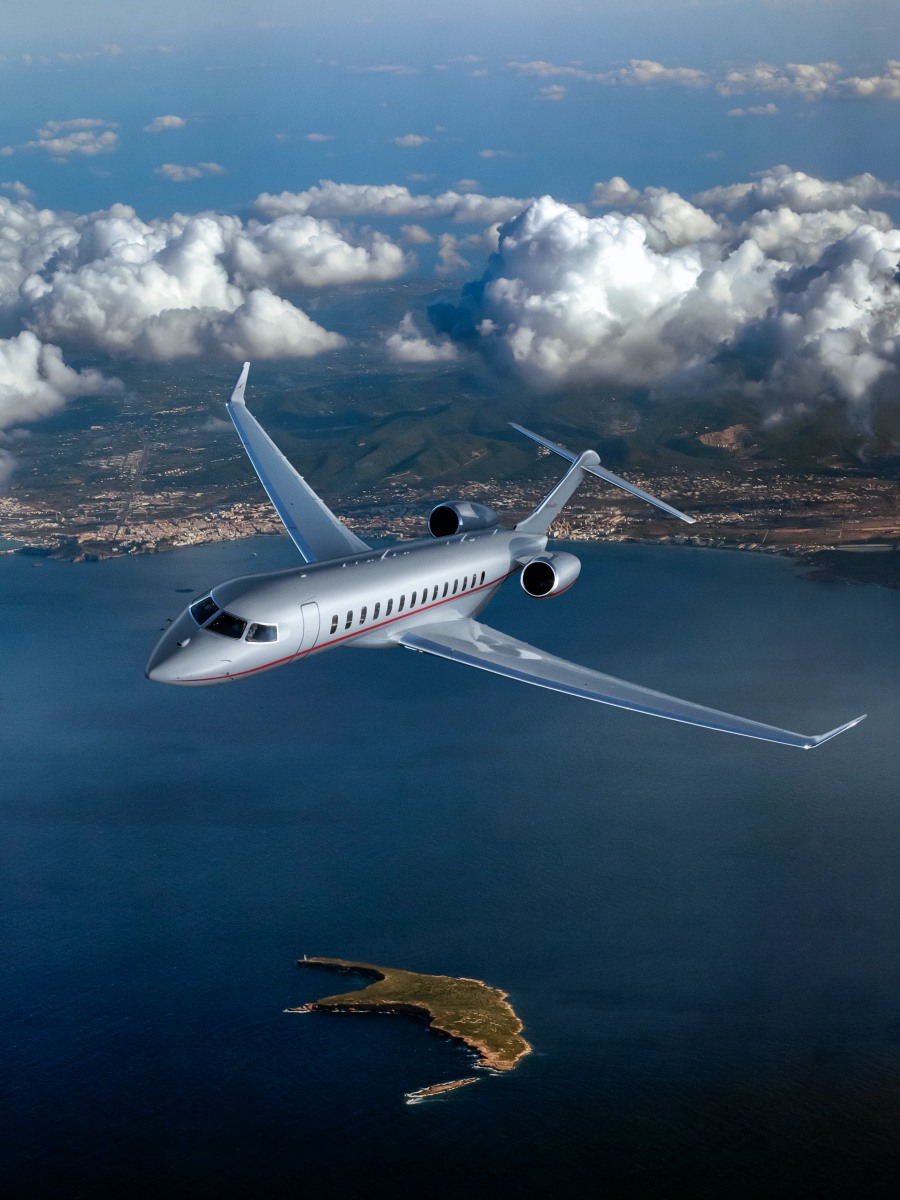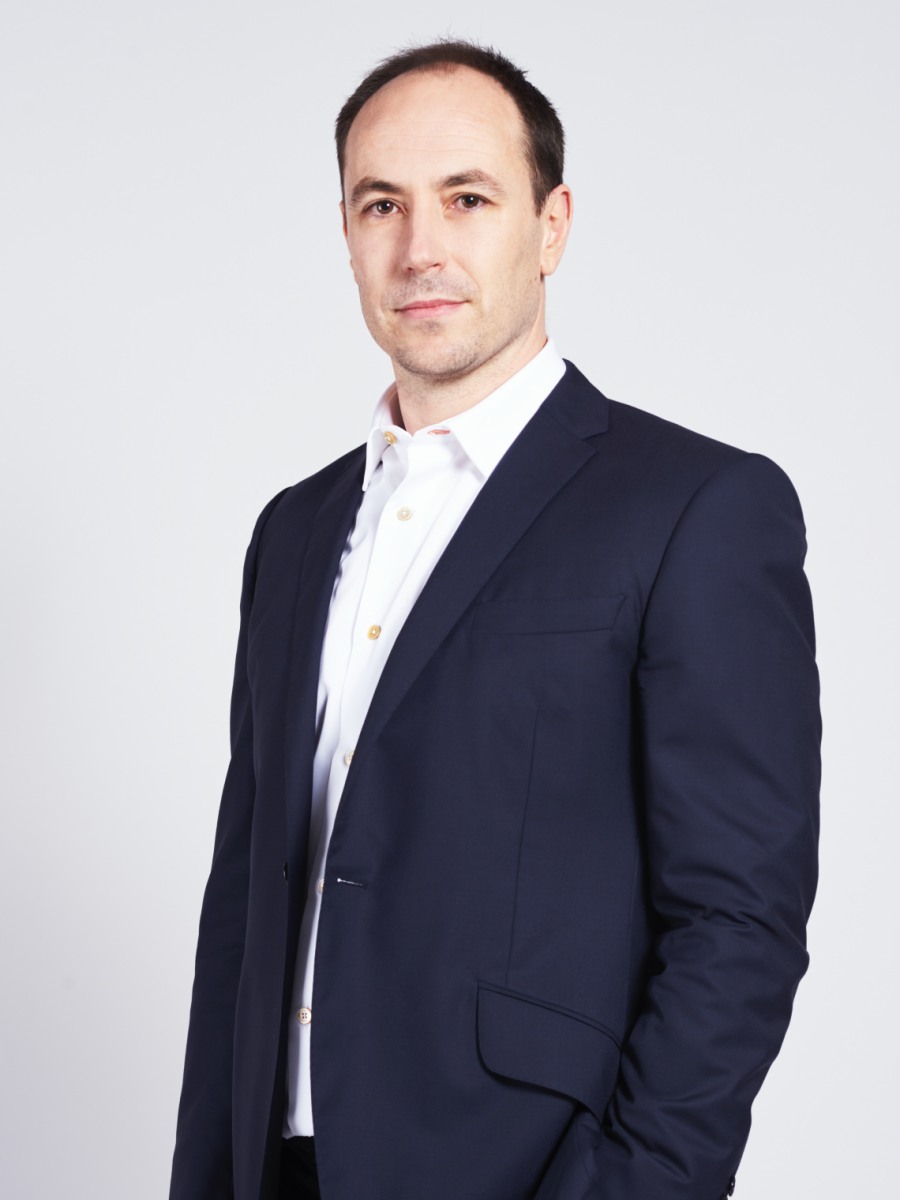In Mind Your Business, we speak with all the great leaders of the world. Here, we feature Ian Moore, chief commercial officer of VistaJet—the world’s only global private aviation company—on how a disruptive business model can triumph
In 2004, VistaJet was a two-air craft operation based in Europe. Almost two decades later, the company is a global leader. That descriptor is crucial to the company’s ascent: armed with a disruptive, consummately path-lighting business model, founder Thomas Flohr and his team have taken the company to global-leader status.
Global is the philosophy that nourishes and fuels how the company functions and operates. Besides flying to almost every location in the world, even hard-to-reach destinations, VistaJet has also kicked down the doors of the aviation industry with its flight hour subscription plan, a personalised payment structure that provides customers with guaranteed access and availability to its entire fleet at a fixed hourly rate, 24/7.
Here, the company’s chief commercial officer Ian Moore chats with us about how listening to customer demands has been pivotal in informing the company’s winning moves year after year.
It’s known that you’re a veteran in the business aviation industry. What drew you to the business?
I’m not an engineer or pilot, neither am I an aviation enthusiast. I used to be in banking, dealing with equities, and it wasn’t really my vibe. But along the way, I got to work with a company on a three-week project on sales analytics. Three weeks became three months, after which, they took me on permanently. I’ve been in aviation ever since. What’s kept me here are the people I’ve met, some of whom happen to be amongst the most successful people in the world and about learning cultures and understanding how people tick from almost every location in the world. It’s been an amazing journey.
This year marks VistaJet’s 15th year in Asia. How would you say the demand for VistaJet’s services has evolved here?
What’s been really interesting is watching demand pop up among countries. Korea, for example, might have a burst in interest. Then, you might see the same thing in countries like Hong Kong and Vietnam. Typically, it shows you the power of referral that our business model has garnered. If you treat a client well, they’ll tell their friends, and it will open more doors for you to grow your business. You can spend millions on advertising but if you make flights go well, people will tell other people—that’s the easiest way to get this business growing.
We’re a global company, which means we not just focussed on one country or one region. The unique nature of our business is that we’re able to fly customers wherever they want. It’s been eye-opening to see how connected the world is, and, how connected it is to Asia.

Take us through the company’s history. How did VistaJet grow from a two-aircraft operation in 2004 to being the only global private aviation company?
First of all, a lot of hard work. A lot of commitment to a business model we tested so many times till we couldn’t come up with an answer as to why it shouldn’t work. We certainly believe that there was a gap in terms of there not being an asset-free model that provides a consistent solution wherever you are around the world—like a hotel—in the market. That fact that we took the asset risk in a very fragmented industry when everyone in the industry would tell us that we shouldn’t own the aircraft, was a bold move.
Our founder comes from an asset financing background, so that, and a real entrepreneurial we’ll-give-it-a-go approach is the combination we still have 19 years on. I feel like I’m in a start-up every 12 to 18 months. VistaJet has given me the opportunity to challenge myself all around in the world. It’s very difficult to replicate this.

In its ascent, VistaJet has acquired other companies such as XOJET and JetSmarter. What decisions factor into whether or not to acquire a company?
That’s a great question. We bought our first two companies to marry them; so technology would sit above both the on-and-off-fleet infrastructures, all under one company. We could have done that ourselves over the course of years, or we could acquire those companies that already have it. So, speed to to market has been a big motivator for it. This enabled to us to gain a footprint in the United States, which we didn’t have before, and hit a whole new demographic of customers.
The recent acquisitions were due to demand, which was well outstripping supply. We had to stop selling if we didn’t do it. We had to face two decisions: either acquire companies or purchase aircraft through manufacturers. If we chose the latter, we wouldn’t have gotten the aircraft till the end of next year or the year after. The companies we’d come to acquired had three things valuable to us: people, customers and aircraft.
Even in the most general and abstract sense, there are merits of going global for almost any business. In VistaJet’s case, what would you say those are?
First and foremost, going global allows you to be where your customers want to be. We’re targeting global citizens, so we have to give them what they want. For us, being global is more about having a global presence and depth of market than a global brand. It was risky and costly but we had to put aircraft in locations, and then build a customer base. But we thought it was worth the risk and it has paid off.
The ability to be global meant that we were finding customers who were using our aircraft the best way possible and flying them longer distances. It has allowed us to be more price-competitive with our customer base. We felt that the most economical way of building the business was to have a counter-party that is global and has economic strength. Being global and local has enabled us to acquire a customer base that keeps telling us more about itself with every flight, and allowed us to employ 4000 experts from over 60 different nationalities.
We’ve acquired expertise by being a global company—which has made us a better company for more global clients.
The company’s flight hour subscription plan has been a bona fide game-changer in the industry. What were some challenges the company had to overcome to prove the merits of its own system?
That’s a great point. You’re literally telling people that Santa Claus is not real. I used to sell fractions so I know it really well. They’ll tell you not to worry about it; “you’ll get most of the money back in a few years”. You’re almost playing this game of Where’s the Ball. Then, you have a management fee and an hourly rate, all of which adds up. So, explaining to people what they don’t want to hear was the hardest thing that we had to do.
What we were, though, is a rational financial person’s dream. The fact that we could give that certainty about what our price per hour was going to be was our selling point. But we to explain to customers that they were paying far more, either by owning an aircraft or buying fractions. That was the hardest thing for us to do.
Lastly, with its position in the industry solidified, what’s next on VistaJet’s horizons?
What’s next for us is marrying the imminent conditions we’re in with the long term plans of the company and making sure we’re constantly stress-testing both. Do we no longer change our business plan? Is our business plan no longer in line with what the new conditions are going to be? As an executive in a company, that’s the hardest thing you need to do in uncertain times. We’re constantly tweaking and we’re constantly adapting our business to the environment we’re in.
For me, the ‘what’s next’ question starts with being humble enough to listen the whole way: whether it’s to our staff, customers, colleagues and stakeholders.






